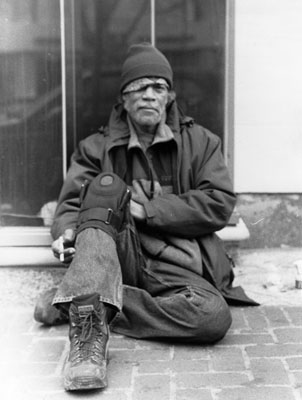All Nonfiction
- Bullying
- Books
- Academic
- Author Interviews
- Celebrity interviews
- College Articles
- College Essays
- Educator of the Year
- Heroes
- Interviews
- Memoir
- Personal Experience
- Sports
- Travel & Culture
All Opinions
- Bullying
- Current Events / Politics
- Discrimination
- Drugs / Alcohol / Smoking
- Entertainment / Celebrities
- Environment
- Love / Relationships
- Movies / Music / TV
- Pop Culture / Trends
- School / College
- Social Issues / Civics
- Spirituality / Religion
- Sports / Hobbies
All Hot Topics
- Bullying
- Community Service
- Environment
- Health
- Letters to the Editor
- Pride & Prejudice
- What Matters
- Back
Summer Guide
- Program Links
- Program Reviews
- Back
College Guide
- College Links
- College Reviews
- College Essays
- College Articles
- Back
Homelessness in Hawaii
One of the most alarming issue occurring in Hawaii is the large amount of homeless people there are. Hawaii has the highest rates of homelessness out of all the states with a rate of 465 homeless people to every 100,000 current residents.The number of homeless people has increased 68% since 2013 which proves how fast this problem is increasing. This amount is too high and needs to be dealt with before it grows and gets more out of control then it already is. Homelessness is an urgent problem that must get solved.
The homeless people affect both residents and tourists. They aren’t only a sore sight to see but some are dangerous to others. Some, but not all, homeless people are either on drugs/alcohol or have mental issues making them unstable, posing a major safety threat towards residents and tourists. It is not safe to have unstable people on the streets for both their safety and of those around them. Homelessness is not only a safety threat but is also hurting Hawaii’s economy as stated by Gov. David Ige. Hawaii has to spend a large amount of money trying to find ways to lower the homelessness population and get them help. They are also damaging the “paradise” like feel of Hawaii to visiting tourists making them debate coming back. The biggest revenue source comes from tourists and they don’t want to pay all that money for luxury and paradise but instead get a bunch of dirty homeless people all over the streets and beaches.
It is also important to help those of the homelessness that really need it the most such as the veterans, children, and families. It is a sad sight to see because the veterans have fought for our country’s safety and our own safety but have fallen onto hard times and just need help. Also, 33% of the homeless people on Hawaii are children and under the age of eighteen years old, which is a very heart-breaking thing to be happening because Hawaii is all about the “Aloha” and community spirit. It doesn’t look like any Aloha spirit with homeless children and seniors all around the Island living in distress and never knowing where their next meal will be coming from or if they will even receive one.
Since this is such an urgent growing problem, Hawaii must take action soon and as reasonably as possible. As of now the most sensible plan of action is to attack the problem while it is still in its early stages and not after it has already happened. By that I mean, instead of waiting to people get homeless and start to house them and help them we must teach them and make them knowledgeable about their choices and financial consequences resulting from them. The most logical way of spreading this information to prevent homelessness would be to teach people while they are still young but at an age where it will really impact them. The best age for that would probably have to be highs chool level. Offering classes in high school will be a great way to sculpt the mind and make them realize that certain choices might end up leading you into being homeless or in serious debt. If they can realize it at a younger age than they will make smarter choices leading to a lower percentage in homeless people. We must think of it as a long term solution rather than having short term solutions that might slow down the problem but not abolish it all together.

Similar Articles
JOIN THE DISCUSSION
This article has 0 comments.
